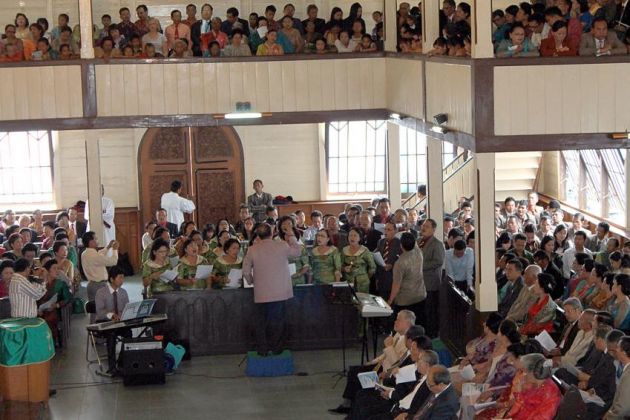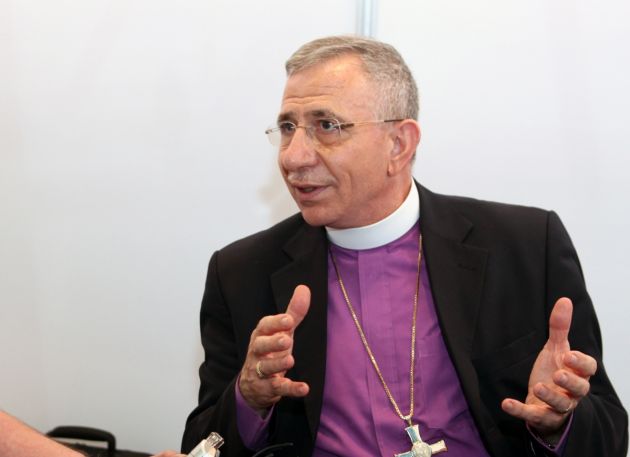Muslim-Christian strains not due to theological disputes: Lutheran leader

There are growing tensions between Christian and Islamic communities, especially in Muslim-majority societies, but these cannot be ascribed to theological disagreements says the president of the Lutheran World Federation.
Bishop Munib A. Younan addressed the main governing body of the LWF, its council June 12 in Medan Indonesia, the country in the world with the biggest Muslim population.
Christians living in Muslim-majority societies "are facing a crisis of immense proportions."
"We are experiencing more and more instances of violent encounter with extremist Muslims," said Bishop Younan.
He noted, "Incited in some cases by extremists in our own communities, Christians have retaliated against Muslim neighbors with violence of their own."
The president of the 72-million-strong LWF said, "This cycle of recrimination and suffering is harming all of God's children, obscuring the face of God among both Christians and Muslims."
"My strong conviction is that these tensions cannot be attributed to theological disagreements between Christianity and Islam; nor can recent violence be attributed to characteristics inherent in either tradition," stated the bishop.
It was important to place the tensions in the context of a growing international power struggle, he asserted.
The 63-year-old Jerusalem-born bishop heads the Evangelical Lutheran Church in Jordan and the Holy Land (ELCJHL).
"Yet again, political and economic struggles between Russia and Western powers are exploiting tensions between communities far beyond their own borders," said the Lutheran leader.
He noted that some scholars predicted growing secularization throughout the world.
'POLITICIZATION OF RELIGION'
Instead, Younan said, "We are instead seeing the resurgence of religious allegiance; too often, we are seeing a politicization of religious identity in the service of political and economic interests.
"Each church in this global communion has a responsibility to ensure that these trends are named and addressed in its own context."
Christians living in Muslim-majority societies need to ask themselves by asking how changes within global Islam affect Christian communities.

"We must also ask what roles we, as numerical minorities, can play in those societies. In this time of great political upheaval, how do we work toward the establishment of preferred political structures that will allow our communities to thrive, living peaceably with Muslim neighbors?"
The bishop noted that most Christians living in Muslim-majority situations, are convinced "through experience and conviction" that they with Islamic neighbors.
"Many of our sisters and brothers in other parts of the world have not been convinced of this possibility. "
That meant that Christians who live close to Muslims are best placed to introduce Islam and Muslims to their fellow believers in other parts of the world.
By doing that they could learn that religious freedom challenges are not found in the Muslim world alone.
"It will be important for Christian friends to listen to Muslim concerns about religious freedom in the supposedly free societies of the West," said the Holy Land bishop.
He cited the case of Switzerland, where citizens had voted to limit public expressions of Islamic faith by not allowing minarets on new mosques.
Despite the tensions Bishop Younan noted there are signs of hope for healthy Muslim-Christian relations in Egypt.
"There is a strong and growing relationship between [the Muslim] Al Azhar University and Coptic Christians - Orthodox, Catholic, and Evangelical - in which each community comes to the other's defense."
After a second revolution in July 2013, Pope Tawadros II of the Coptic Church, and Sheikh of Al-Azhar, Ahmed El-Tayyeb, announced at a press conference the creation of the Al-Azhar Document for Basic Freedoms.
He also noted that in May, a high-level interreligious meeting was convened by the Lutheran World Federation, Konrad Adenauer Foundatio, the Evangelical Lutheran Church in Tanzania, and Mission Eine Welt along with different Muslim institutions.
The groups at the meeting signed a joint interreligious declaration, peacebuilding, democracy and development.
"This statement was issued even following attacks on Christian communities in Zanzibar, Tanzania."